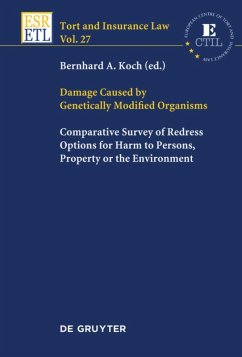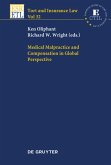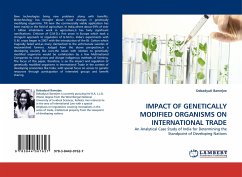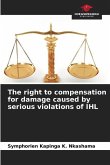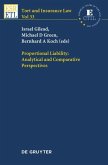The debate about the use of genetically modified organisms in European agriculture is fuelled by the fear of the general public about potential risks of GM farming, whether substantiated or not. Transgenic food is suspected to cause bodily harm, have a negative impact upon the health of animals, weaken the productivity of conventional farmland, reduce biodiversity or otherwise deteriorate the environment, to name but a few dangers popping up in the public debate.
Apart from setting standards for GM farming and requiring safety checks for transgenic products, all jurisdictions also provide for the case that such risks should materialize. These are not necessarily novel approaches - classic tort law already offers remedies for such losses. Sometimes these traditional solutions are enhanced or replaced by alternative redress schemes. This volume compares twenty European and four non-European jurisdictions in this respect and provides special analyses from an economic and insurance perspective as well as surveys of cross-border dispute resolution and international law.
Apart from setting standards for GM farming and requiring safety checks for transgenic products, all jurisdictions also provide for the case that such risks should materialize. These are not necessarily novel approaches - classic tort law already offers remedies for such losses. Sometimes these traditional solutions are enhanced or replaced by alternative redress schemes. This volume compares twenty European and four non-European jurisdictions in this respect and provides special analyses from an economic and insurance perspective as well as surveys of cross-border dispute resolution and international law.

